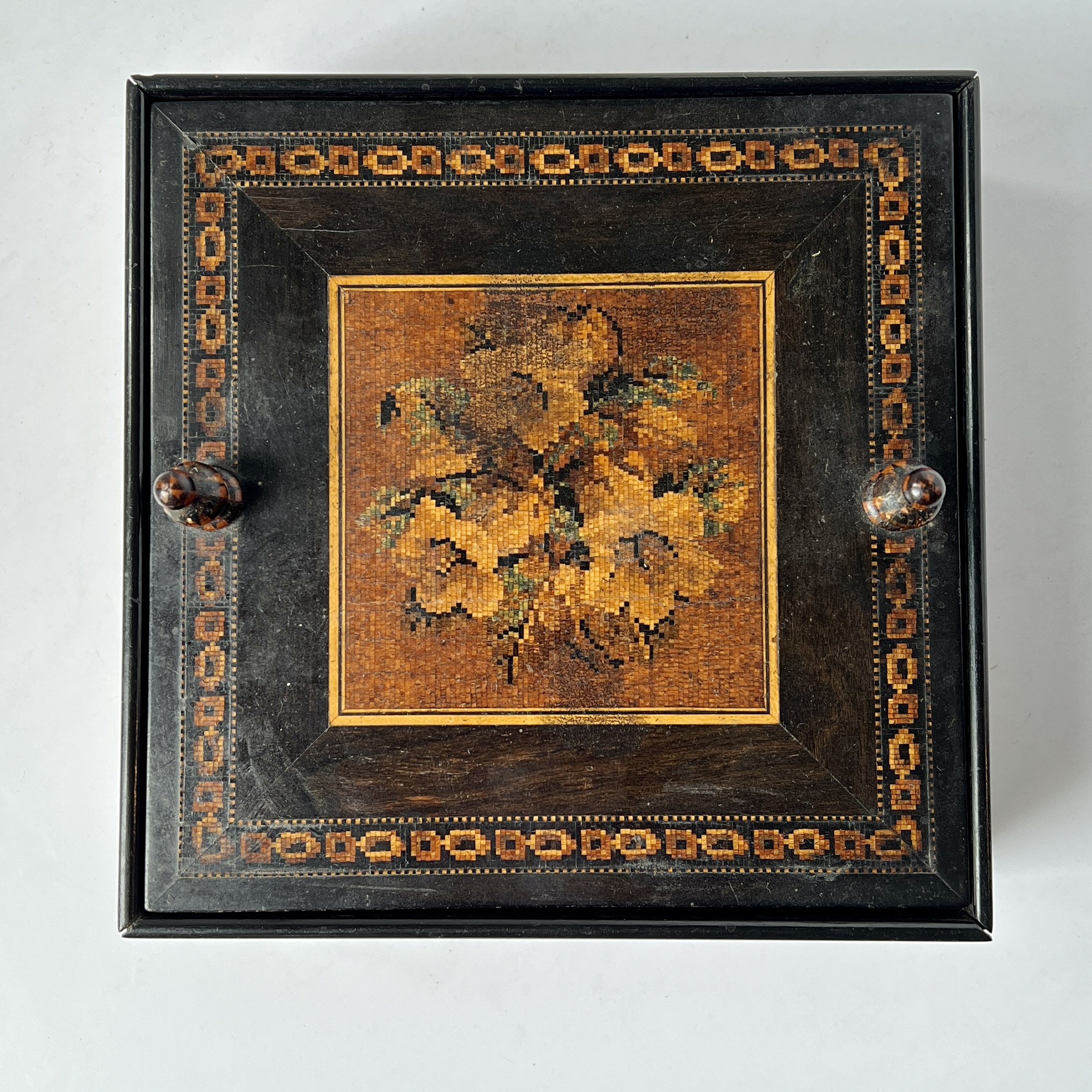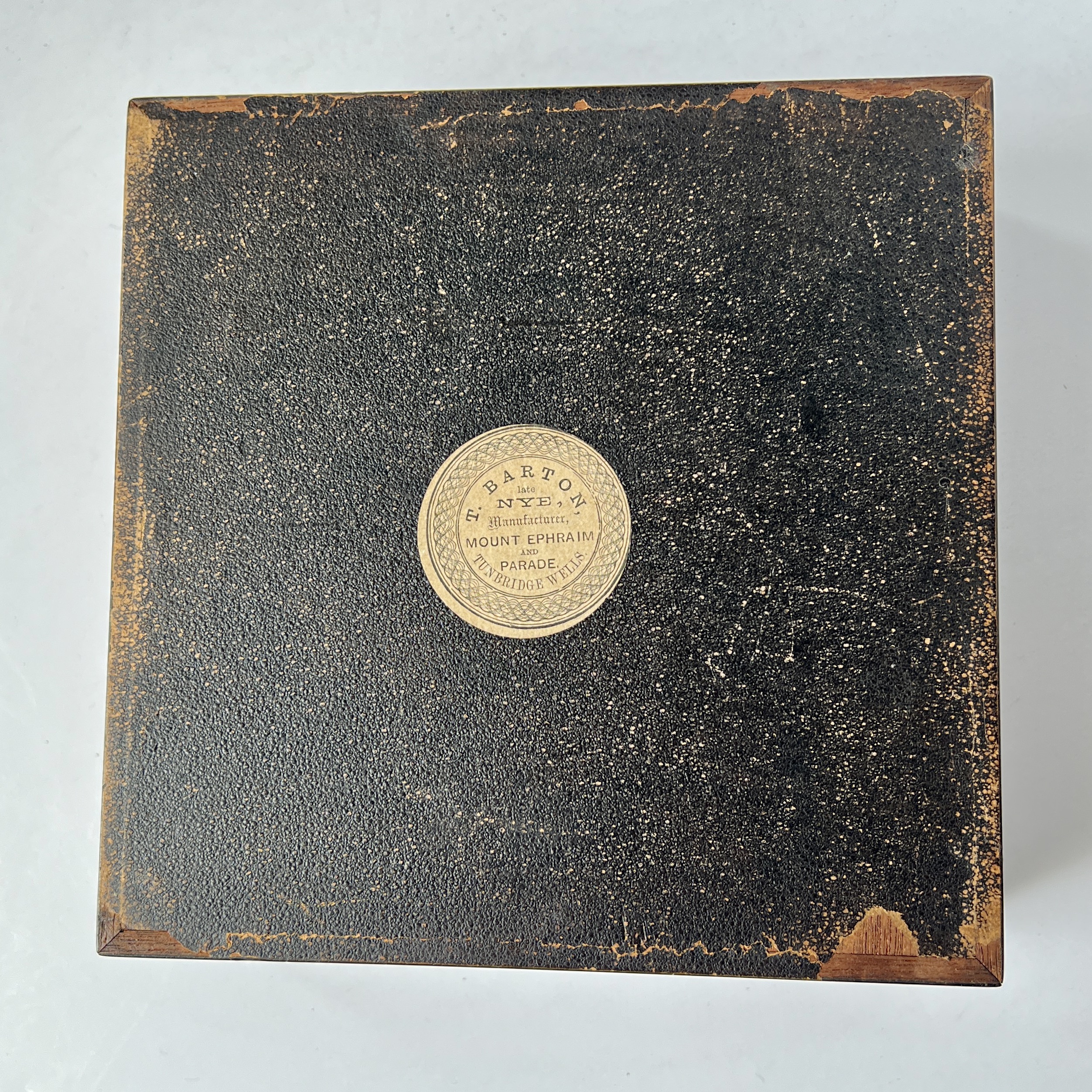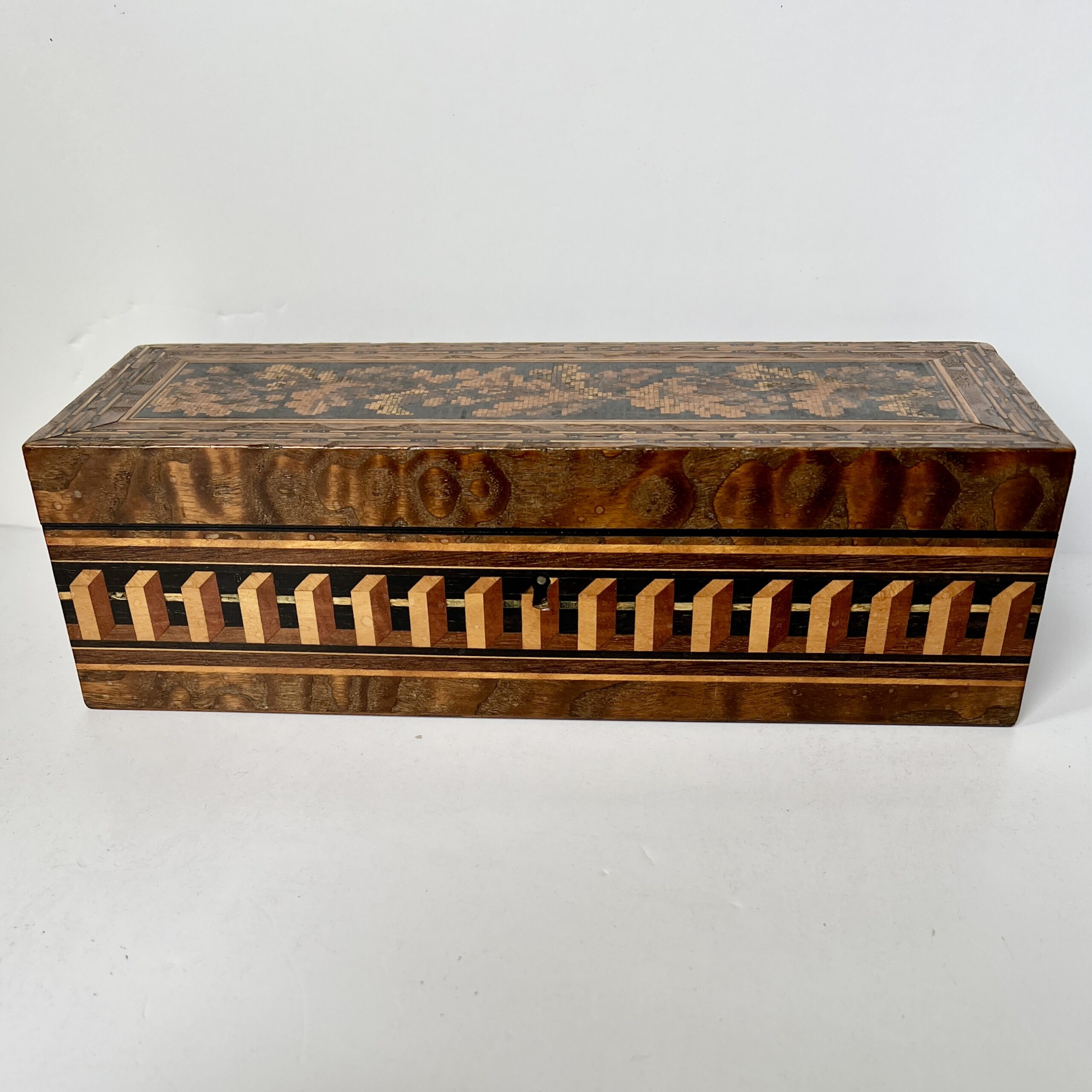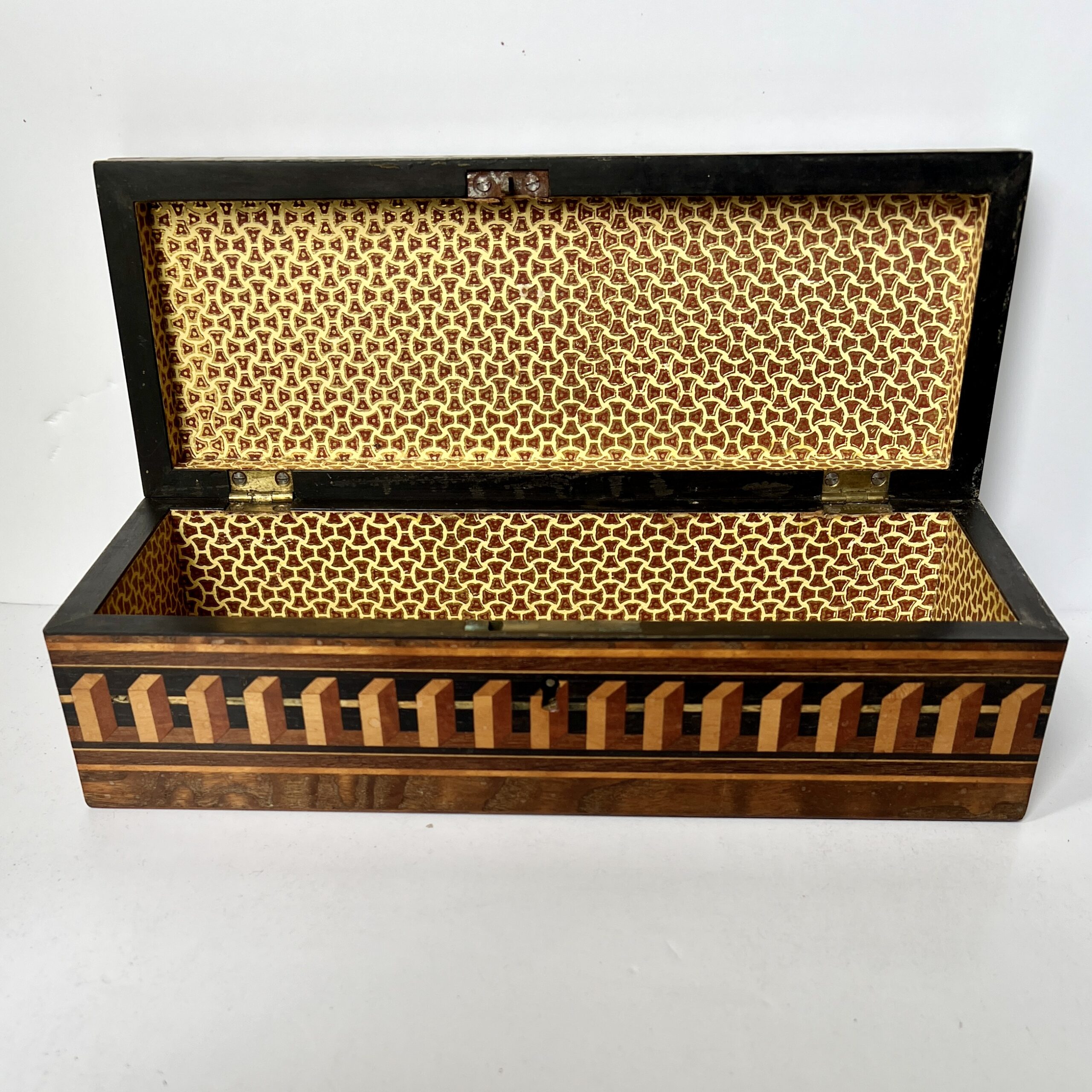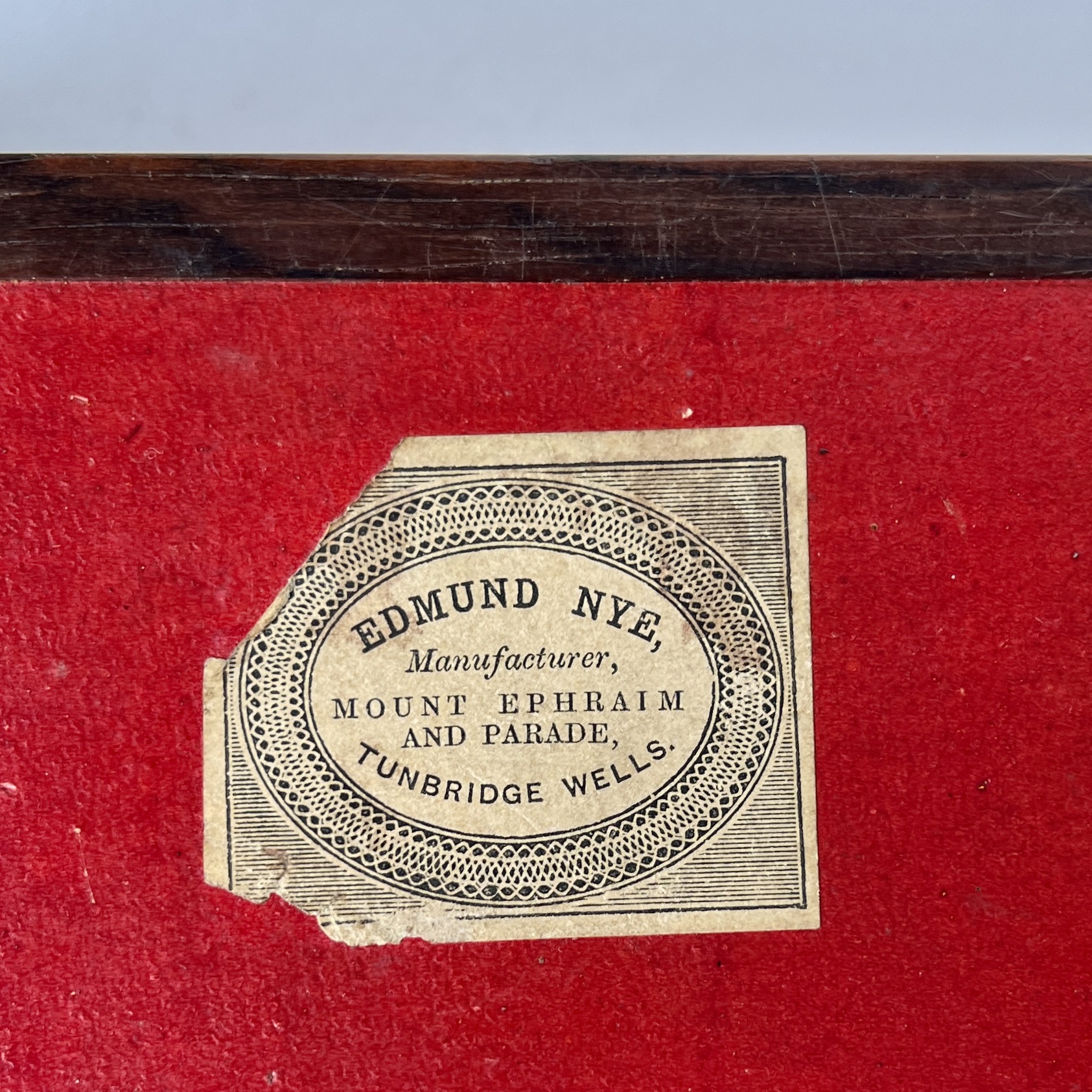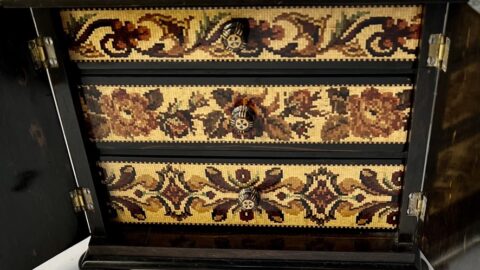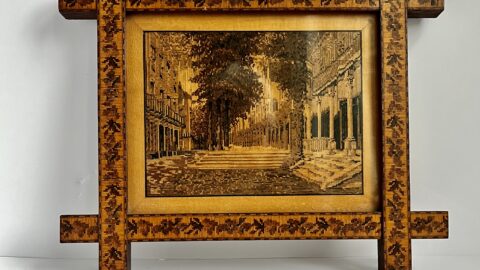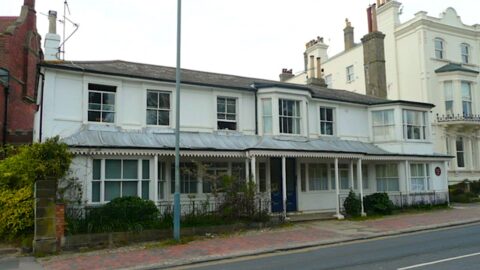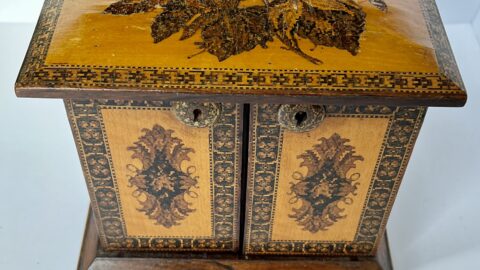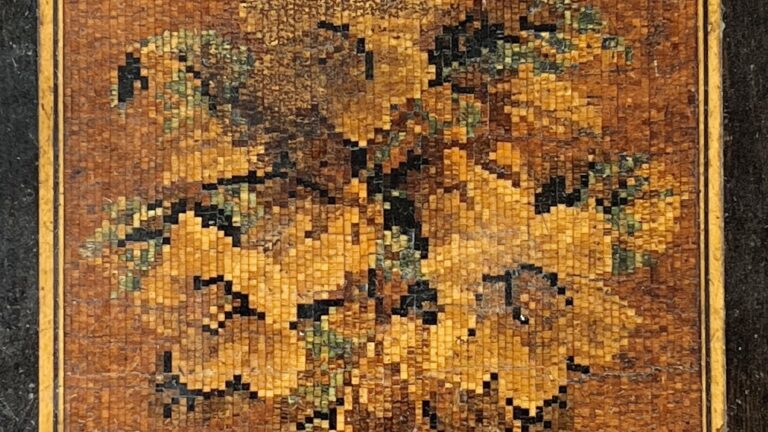
Tunbridge Ware Makers. 1. Thomas Barton.
August 19th, 2024

THOMAS BARTON 1819 – 1903
Thomas Barton was a prominent maker of Tunbridge ware, a distinctive form of decorative woodwork that originated in Tunbridge Wells, Kent, England, in the 18th century. Tunbridge ware is known for its intricate marquetry, often featuring geometric patterns and scenic designs, typically made from various types of wood, including mahogany, oak, and cherry.
Barton was active during the late 18th century and is recognized for his craftsmanship in creating a variety of objects, including boxes, trays, and small decorative items. His work often incorporated the traditional Tunbridge ware techniques, which involved the use of small pieces of wood inlaid to form intricate designs.
Barton’s pieces are characterized by their quality and attention to detail, which helped to elevate the status of Tunbridge ware during its peak popularity. His contributions to the craft not only showcased the artistry involved but also played a role in the broader cultural and artistic movements of the time.
Today, items made by Thomas Barton are considered collectible and are often sought after by enthusiasts of antique furniture and decorative arts. The legacy of his work continues to be appreciated for its historical significance and craftsmanship.
Thomas Barton typically created a variety of decorative objects using the techniques characteristic of Tunbridge ware. Some of the most common types of items he produced include:
1.Boxes: Often used for storing jewelry, letters, or personal items, these boxes featured intricate inlaid designs.
2.Trays: Decorative trays were popular for serving or display, showcasing elaborate patterns and craftsmanship.
3. Games and Puzzles. Barton sometimes crafted game boards or puzzles adorned with Tunbridge ware designs, appealing to both aesthetic and functional purposes.
4. Picture Frames: He created frames for portraits and landscapes, often embellished with detailed marquetry.
5. Writing Desks: Some of his pieces included small writing desks or compartments for stationery, combining utility with decorative artistry.
6. Tabletops: Inlaid tables with elaborate designs were also part of his repertoire, serving as functional furniture and art pieces.
7. Small Decorative Items: This included items like snuff boxes, coasters, and other small accessories that showcased the fine craftsmanship of Tunbridge ware.
His premises were at Mount Ephraim and Parade Tunbridge
Wells.
Barton trained with George Wise until 1836 when he worked for Edmond Nye, until 1863, when he took over the business on the death of Nye.
